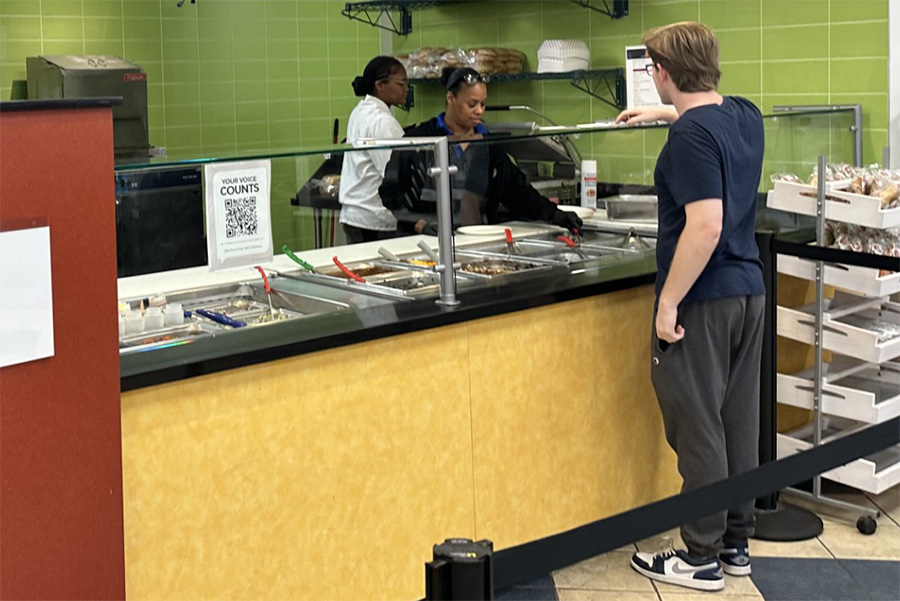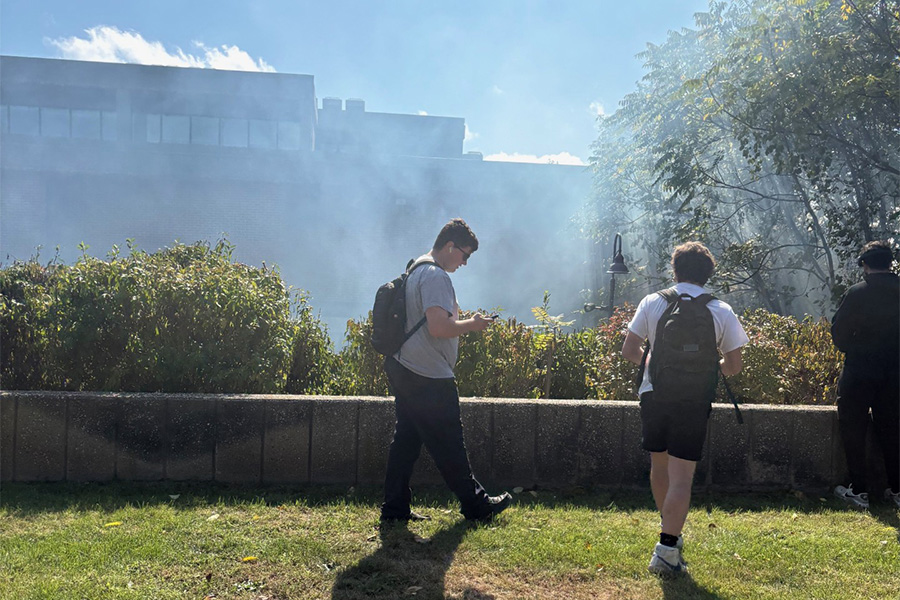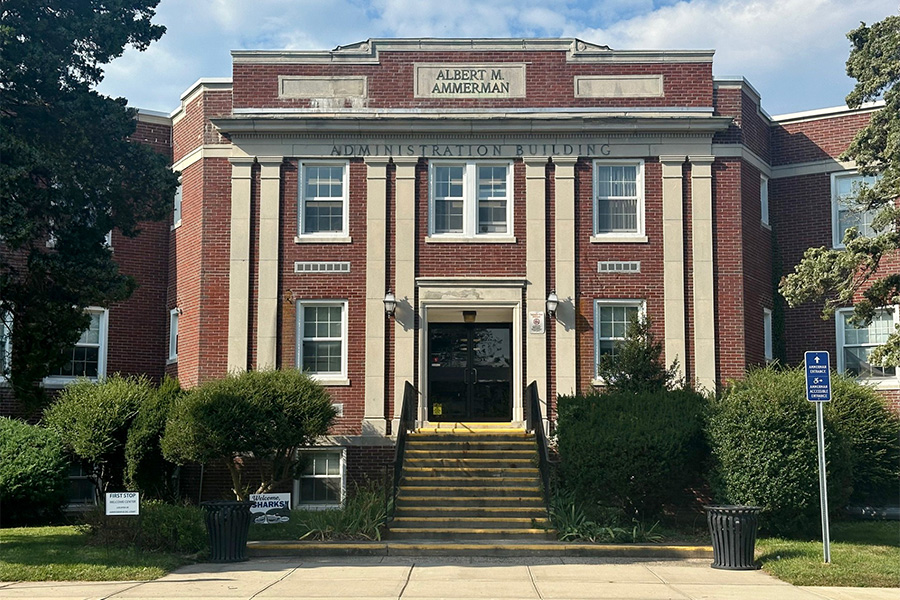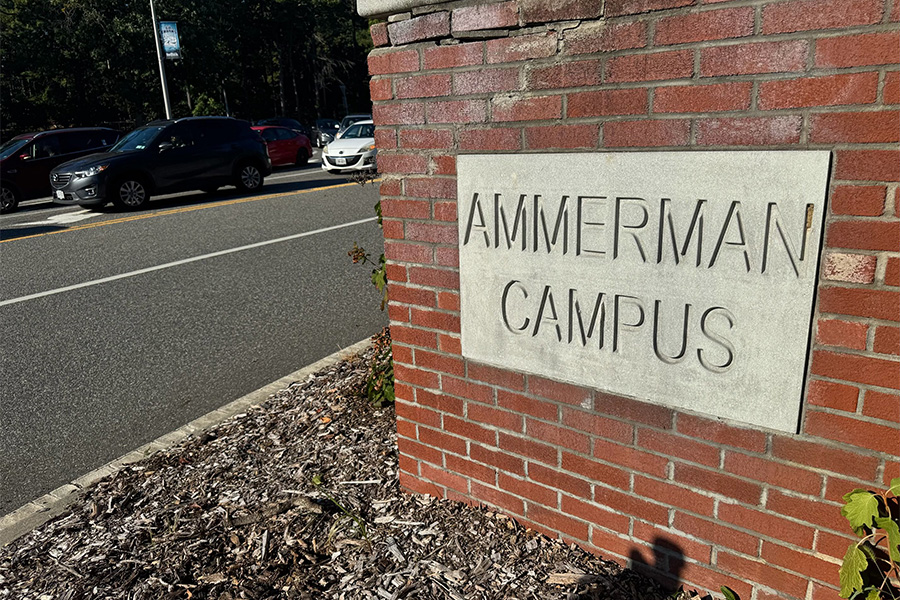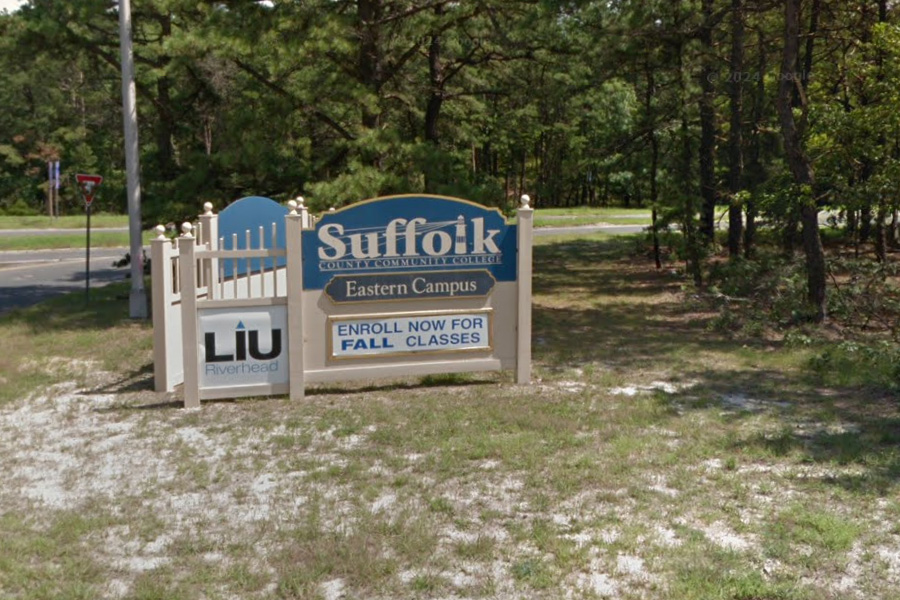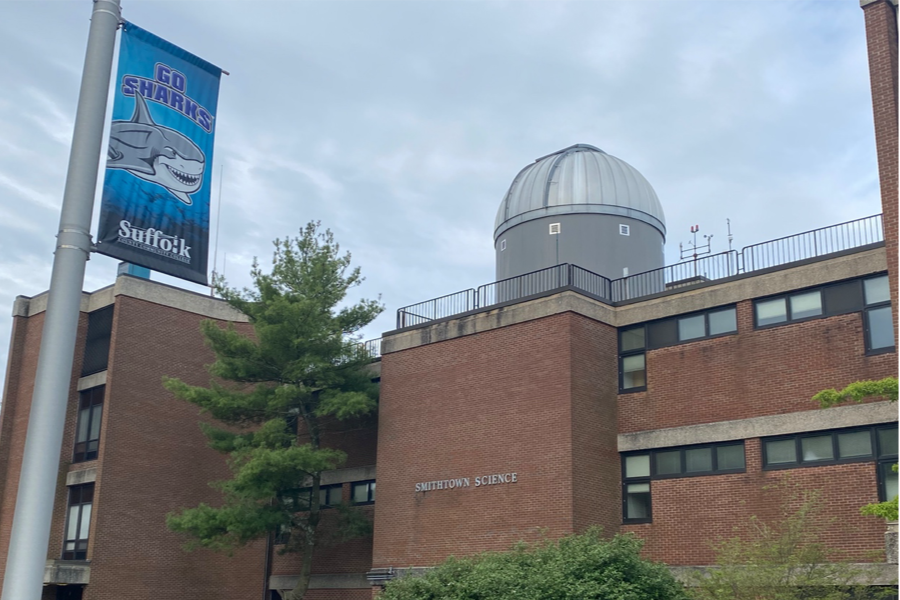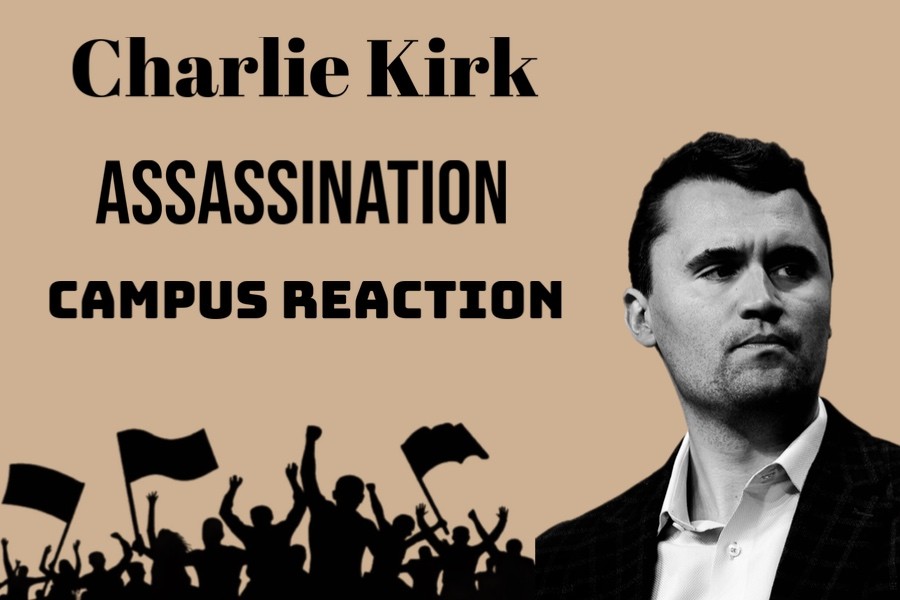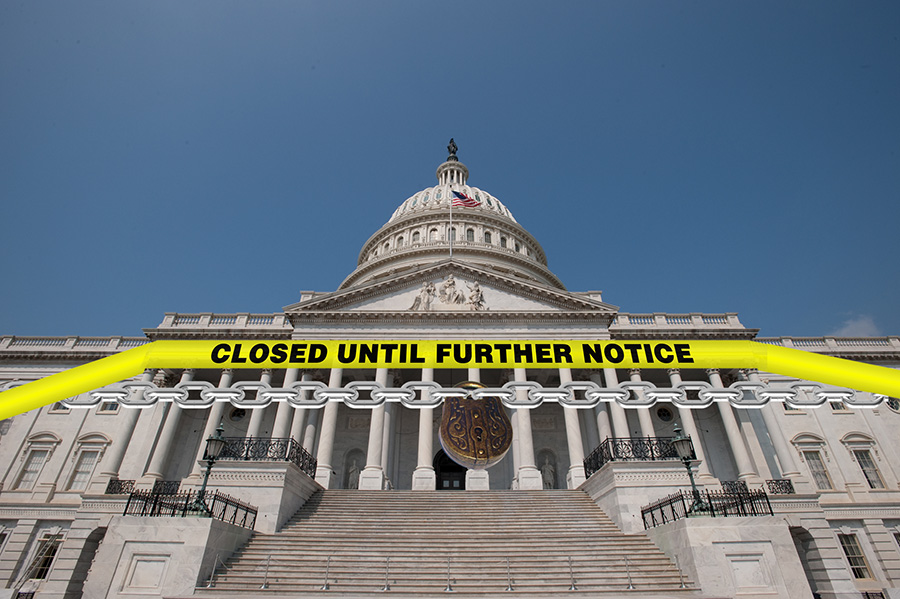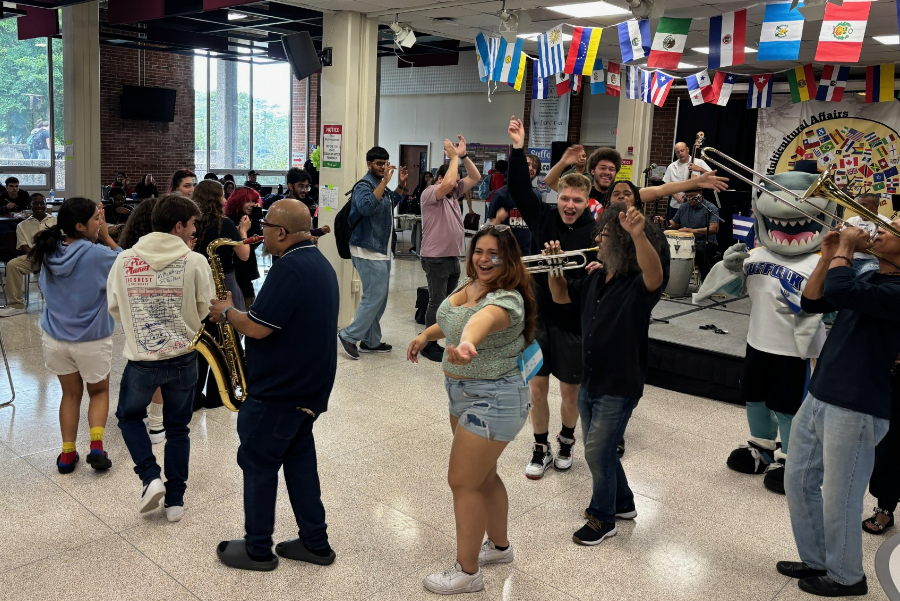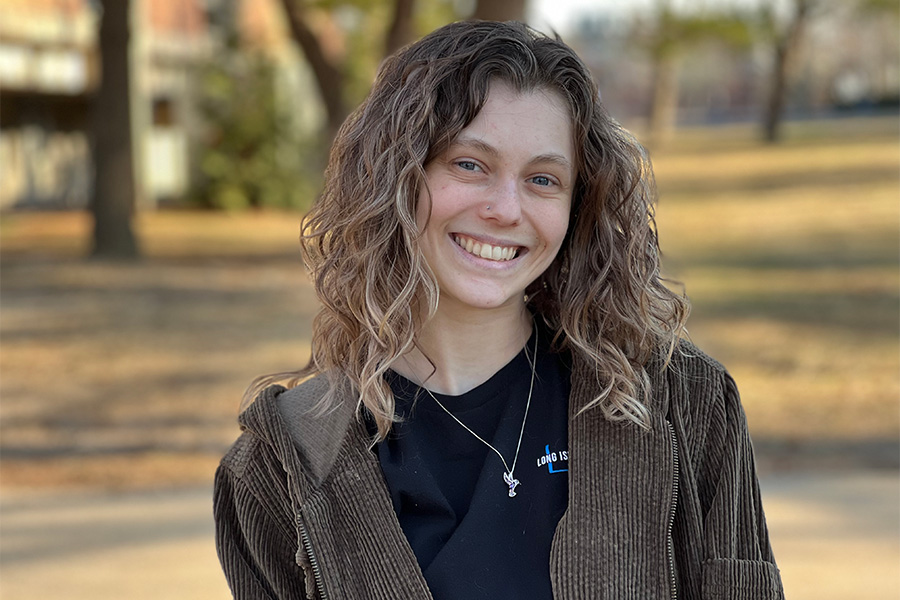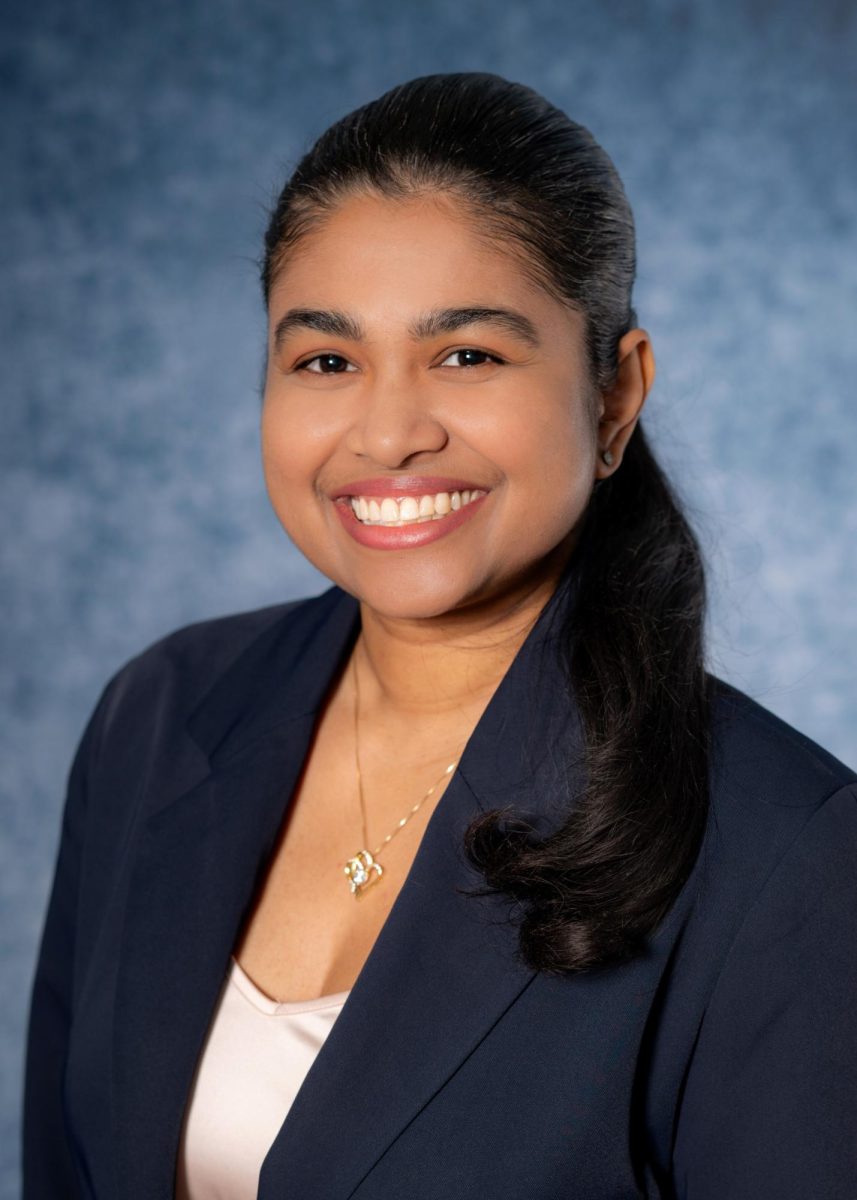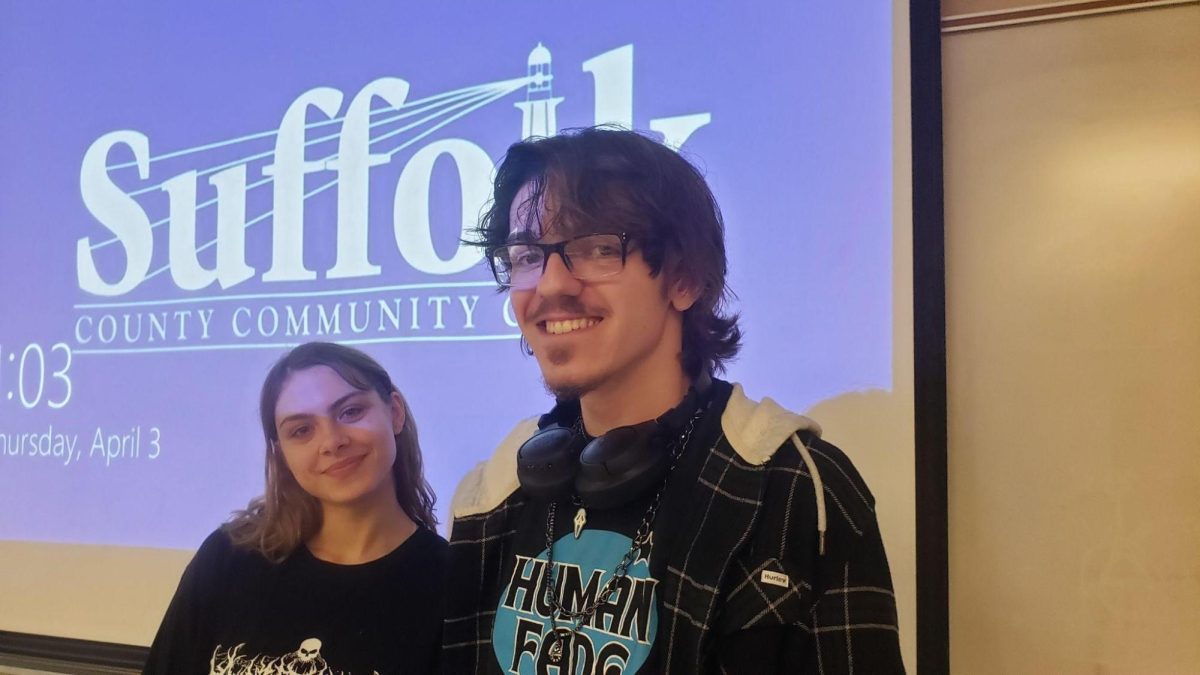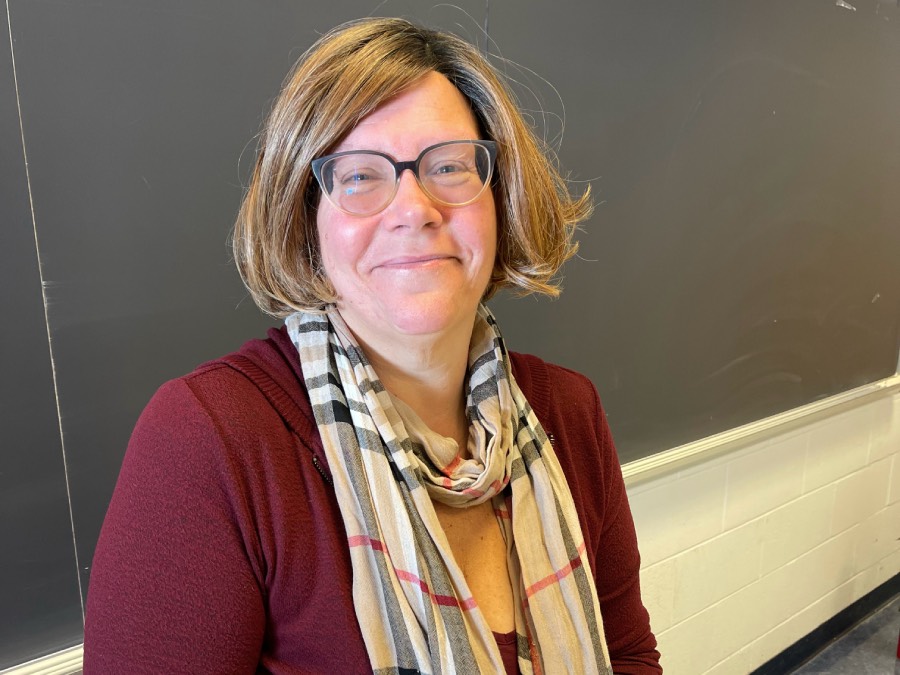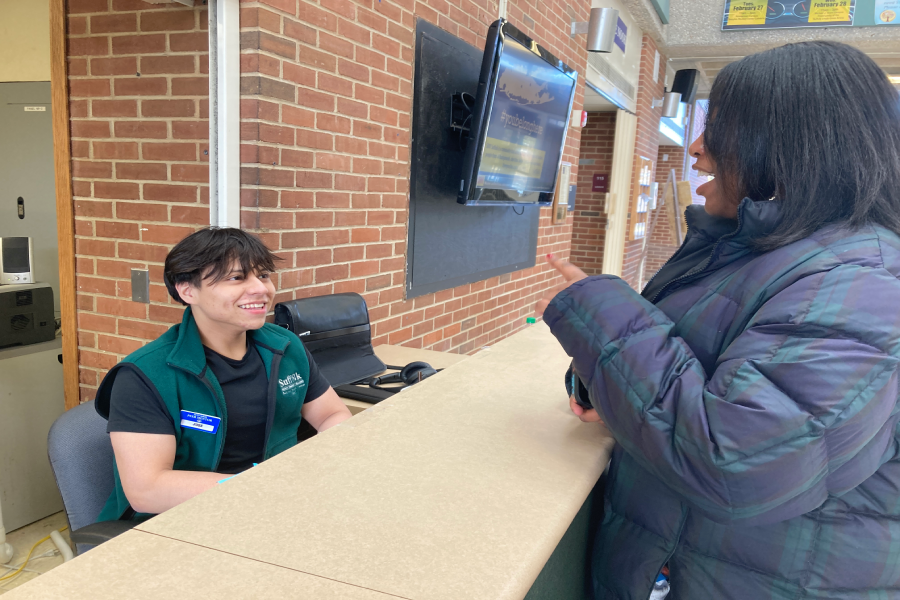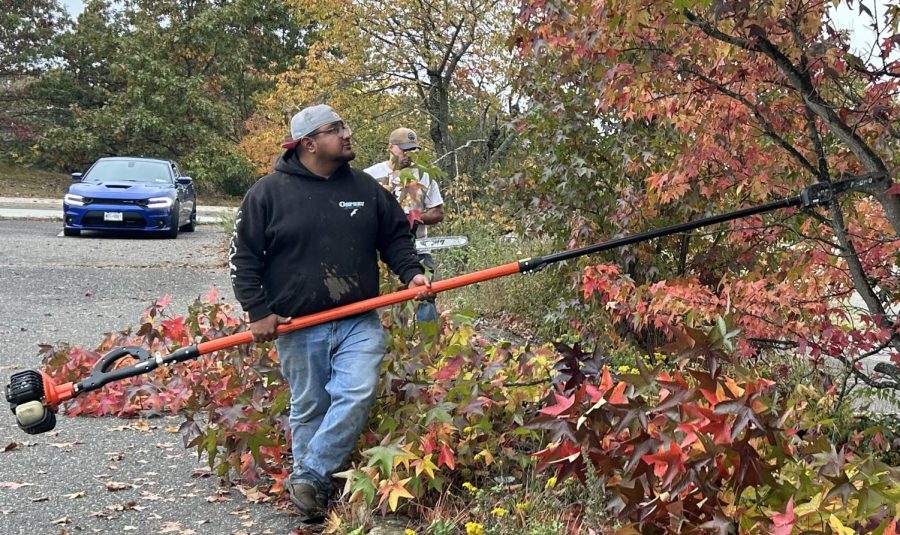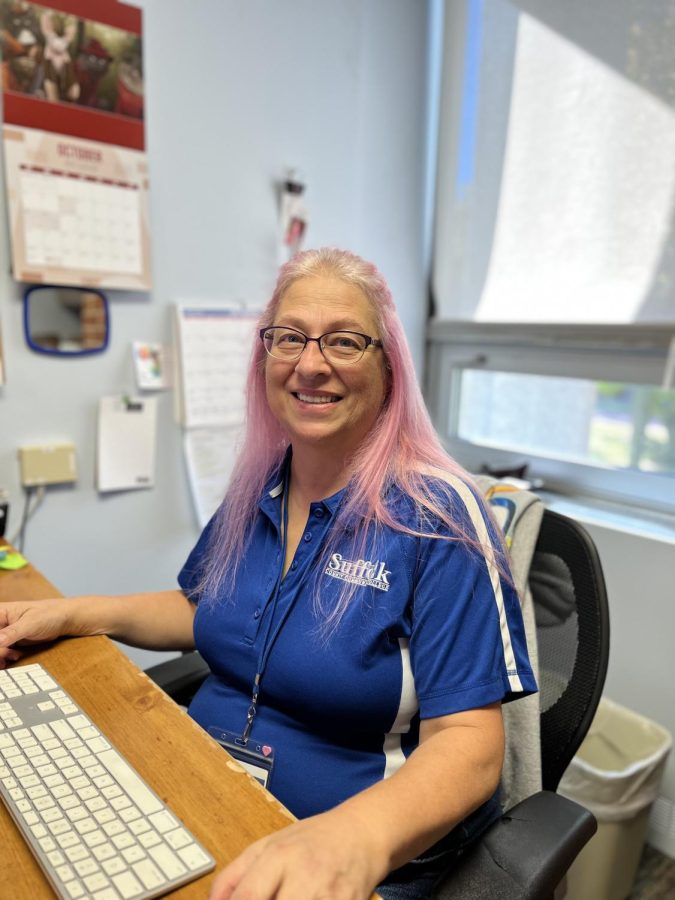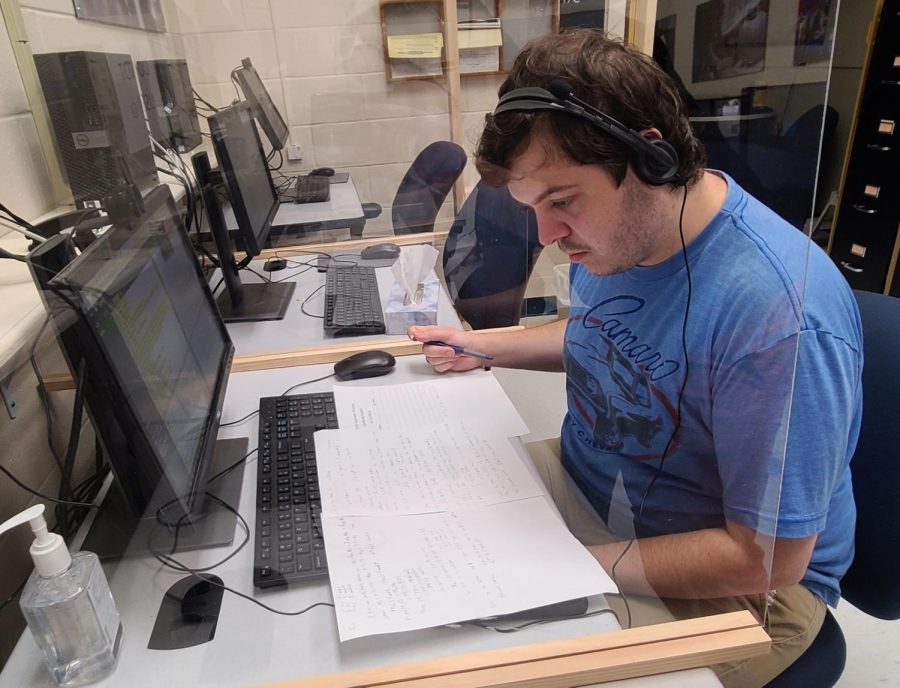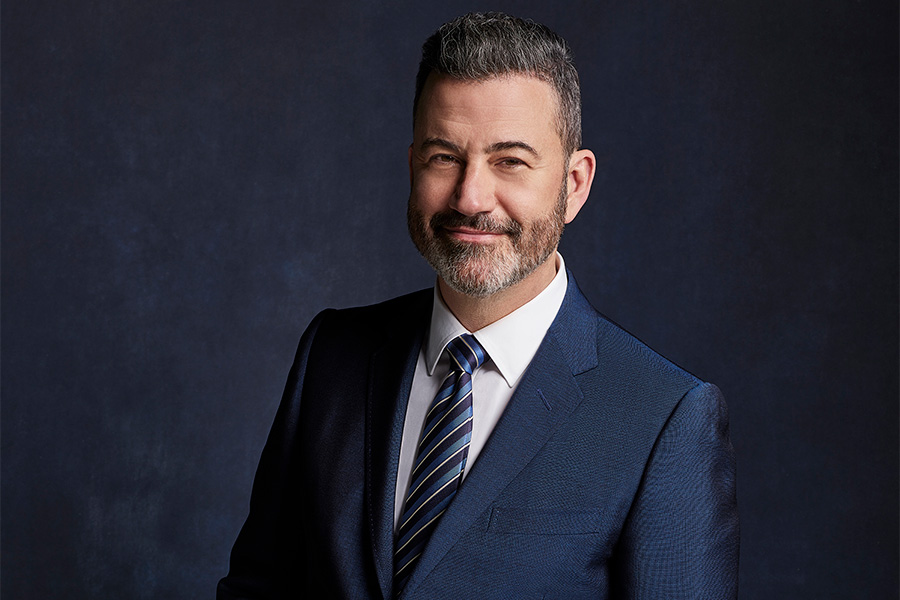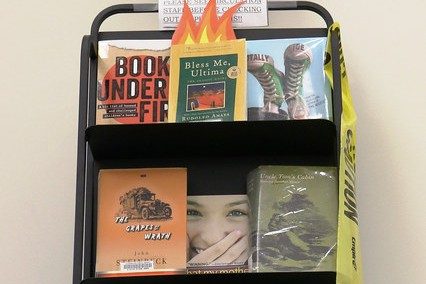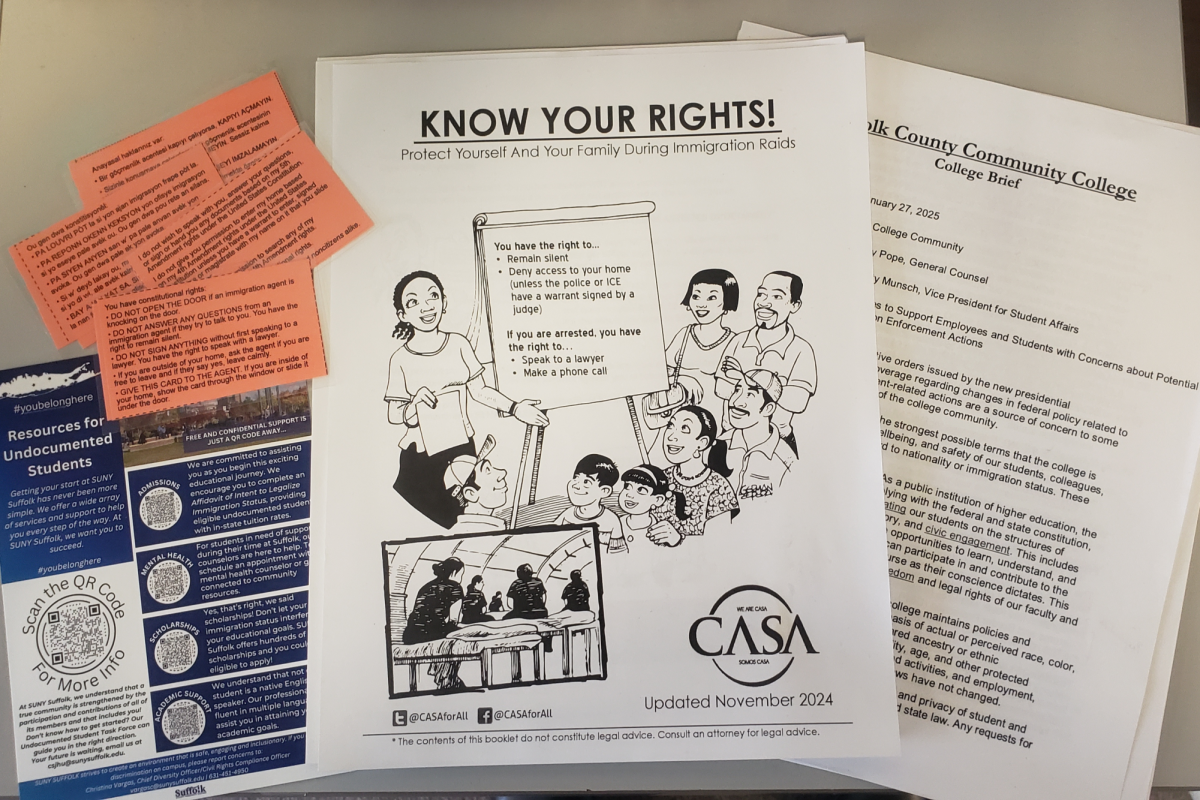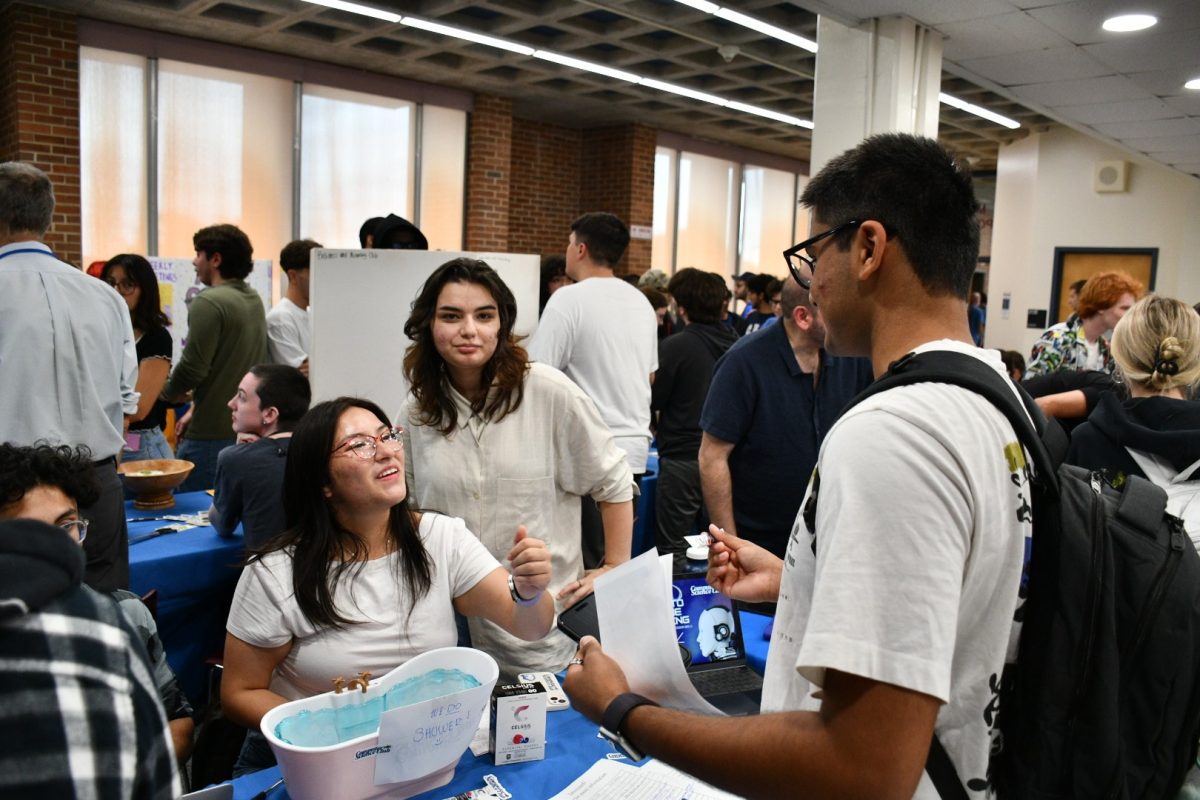During President Trump’s first day in the Oval Office, he and his administration reversed a long-standing, federal immigration policy and Suffolk County Community College and its surrounding communities are already feeling the effects of these changes. The policy recently reversed by the Trump administration centers around both the federal agency of Immigration and Customs Enforcement (ICE) and the federal agency of Customs and Border Protection (CBP) in regard to their jurisdiction over what are deemed as sensitive “protected areas.”
This policy change has sent shockwaves through the college as students, professors, staff and administrators struggled to understand the consequences of the potential for federal agencies to gain access to SCCC campuses and arrest students who are undocumented.
“They’re scared!” said Dr. Kristin Peters, the ESL Tutoring and Resource Center Coordinator, a professor of world languages as well as Spanish Club advisor.
Peters, who works with many immigrant students at Suffolk continued, “Some of them are afraid to come because they do not want to congregate in an area.”
Not only are faculty members voicing their concerns over the new governmental policies but so are SUNY Suffolk students themselves.
“With mass deportations, it will impact our country’s economy one way or another. Many people who work at construction sites, plantations, landscaping and other jobs are mainly of Hispanic descent,” said “Jon,” a SUNY Suffolk who, out of concern over the safety of his loved ones and fear over President Trump’s new immigration policy, asked to have his real name withheld. “As an employee of a landscaping company, I’m constantly moving from house to house. It gets scary sometimes because many landscaping companies have common Spanish names.”
Supporting Jon’s idea that these new immigration policies will negatively affect the United States’ economy is data from the Joint Economic Committee, which forecasts that the real gross domestic product could be reduced by as much as 7.4% by 2028. The data also suggests that there will be labor shortages in key industries removing roughly 225,000 workers in agriculture and 1.5 million in construction, and prices would increase up to 9.1%. Times will be challenging if people are losing their jobs and prices increase.
“Working as a landscaper with my dad, I see why people are scared to work because they don’t want to get involved with ICE. We shouldn’t be afraid to step out of our homes” continued Jon.
Responding to concerns, the Ammerman campus hosted a “Know Your Rights” training event in the Babylon Student Center on Feb. 26. The event was presented by Erick Villalobos, member of the Central American Refugee Center, a not-for-profit organization that empowers immigrants through legal services, community education and advocacy.
In addition to off-campus services, many Suffolk professors have also begun to provide information and resources to students who may be targeted by ICE.
Peters offers contact information for immigration lawyers, red cards and packets explaining students legal rights. They are provided in English, Spanish, Creole, Turkish, and Haitian along with copies of SUNY Suffolk’s response to current governmental immigration policies at the World Languages/ESL Resource Center in Room 114 of the Islip Arts Building.
According to a 2021 Memorandum entitled, Guidelines for Enforcement Actions in or Near Protected Areas, certain areas were deemed as “sensitive” and therefore “protected” because of how the “impact an enforcement action” could negatively affect “people’s willingness to be in the protected area and receive or engage in the essential services or activities that occur there.”
With a spokesperson from the Department of Homeland Security declaring that, “Criminals will no longer be able to hide in America’s schools and churches to avoid arrest,” the Trump administration’s new directive excludes the following, previously “protected areas” as “off limits” to both the ICE and CBP:
*Schools – preschool, primary, secondary, trade and vocational
*Any health facility both medical and mental.
*Places of religious worship like a church, synagogue or mosque.
*Places where children gather such as a park or playground.
*Social service establishments such as homeless shelters, food banks, drug and alcohol recovery centers, and community centers.
*An area designated for disaster or emergency relief such as a shelter.
*A funeral, graveside ceremony, wedding, or any other religious or civil ceremony.
Students at Suffolk continue to express their fears and worries. “Some may not be in trouble but for the people who aren’t legal, it scares them since this opportunity of education are very likely to be taken away. When I think of the mass deportations it brings me into a sense of reality, it’s tough,” said “Gus,” another SUNY Suffolk student who wanted to have his real name withheld out of fear of repercussions resulting from President Trump’s reversal of immigration policy.
Along with holding the “Know Your Rights” training event, Suffolk County Community College additionally sent out an email stating that in a scenario where ICE appears in the school, professors must let them in since the school is public, but instructors must send any government officials to the college legal department and campus security.
“School should be a safe place for all students. A student should not be thinking about their opportunity to learn being taken away” said Gus. “We should instead push people to learn and pursue their dreams and instead of crushing them and leaving them with nothing.”
Echoing this sentiment was Professor Danna Prather Davis, the assistant academic chairperson of the Communication, RTV, and Cinema department who has witnessed first-hand such anxiety in some of her students.
“It makes it more difficult for students to focus on their studies, and sometimes complete their assignments, which is what they are here for,” said Prather Davis.
“Students don’t want to come to school,” added Peters.
Social media has been informing people about their rights in the face of ICE investigations. “Know your rights” describes a step-by-step process to anyone who gets involved with an ICE agent, whether it be at home or public places.
“It’s amazing how quick access we have in order to inform people in need in order to know what to do when an ICE agent appears in front of you” said Gus.
The fear of mass deportations has taken an effect on many people in the United States. No matter if a person is in favor of mass deportations or against it, people must realize that it will affect a person’s life. “It’s taken a toll on many families in this country. It’s spreading fear and worry. Hopefully people can act on it and express their feelings on important people in this country,” Gus said.
“It is affecting documented students, and documented students are worried about their friends. They’re worried their friends are going to be sent back, and some of their friends have no memory of living in their country – they’re too American to go back.” Peters said.
Members of the campus community expressed hope that the college could provide a united front to protect all students and ensure a safe and open environment for learning and for meeting the college’s mission of being “a student-centered college community serving Suffolk County and beyond by providing open access to exceptional educational opportunities.”
“I hope that people remember that our legal team is doing their very best to make sure that our students are protected to the degree that they can within their roles of the executive order,” said Prather Davis, who posts SUNY Suffolk’s policies on the deportation actions on both her classroom and office doors.
“The school does have a policy, a plan, it’s updated as new information becomes available. It’s good to know the school isn’t just ignoring this, that they’re trying to make our campus welcoming to all students. Our motto is ‘you belong here’ and the school hasn’t given up on that.”
